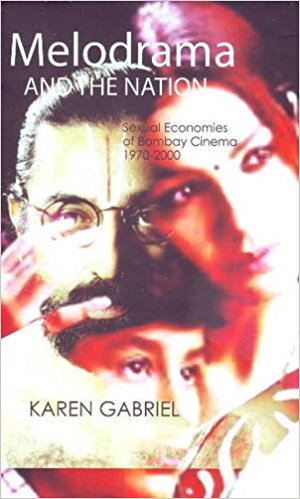The book begins by attempting to address’a key weakness in film theory: the text governs the production of, and is also represented in, cinema. In this the author seeks to move beyond general film studies which deals only with ‘narrative and its thematic, stylistic and formal characteristics’, and also beyond traditional feminist criticism and its psychoanalytic approach.
The author begins by locating the role of the state and society in the formation of the ‘filmic text’ via implicit regulations—conventions of ‘acceptable or approved’narrative and therefore those that become financially viable or not—as also more formal means of state controllike censorship. She moves on to study melodrama as the pre-eminent genre of mainstream Bombay cinema to show how patriarchal gender relations are fixed and regulated throughits narratives and legitimized by the use of mythological references and parallels.
Next, using the postcolonial experience to arrive at an understanding of how power functions within any set of hierarchal relations, she applies this to patriarchy to show how it organizes social space, including or excluding often with violence those it considers a threat to its stability. The overriding metaphor of the Nation is exposed in its powerful nexus with Hindu patriarchy to render ‘gendered’ all minorities including homosexuals and Muslims, not just women. Stereotypes of the macho ‘vigilante’ hero are interrogated to reveal how despite the myth of social reform that they are purported to herald they are in fact entirely regressive figures vis-a-vis the liberation of women.

